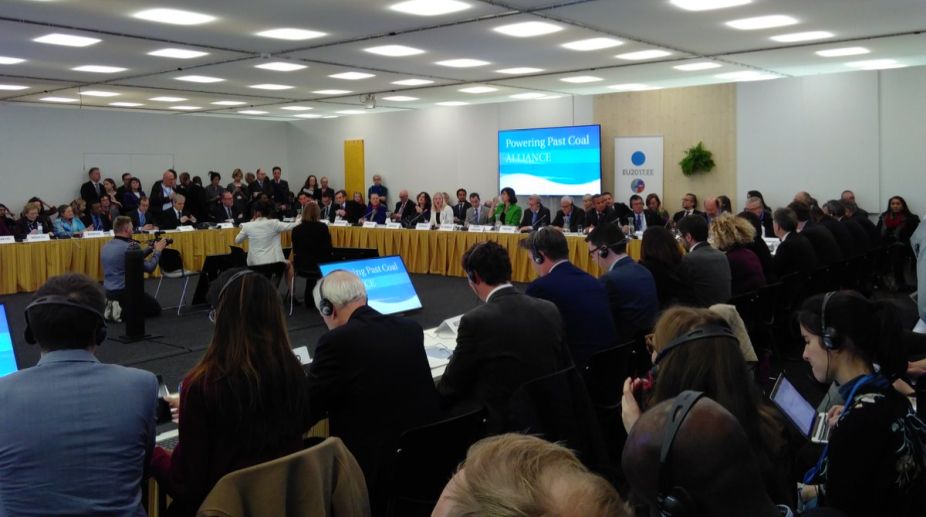It is gratifying to reflect that the climate-change conference in Bonn has registered a critical forward movement with the 19-nation Powering Past Coal Alliance emitting the signal to phase out coal ~ trashed as the “dirtiest fuel” that provides 40 per cent of global electricity. The concert of powers that has pledged to ensure a cleaner environment is helmed by the UK and Canada with Mexico, New Zealand, Denmark and Angola signing up as new members.
As a major coal-polluter, India is yet to spell out its stand on what has generally been acknowledged as a “political watershed”. Though Donald Trump’s America has already let it be known that it shall not abide by the Paris agreement of 2015, the world does expect an unequivocal stand from the White House on the phasing out of coal ~ a major factor behind environmental devastation. No less unequivocal must be the case against coal and not least on environmental and health grounds.
Advertisement
It is an awesome thought that “coal pollution” kills no fewer than 800,000 a year across the world. India remains particularly vulnerable with hundreds of thousands of undiagnosed casualties in the rural belt. “The alliance will signal to the world that the time of coal has passed,” is the UK climate minister Claire Perry’s assurance to the world. Clearly, the transition to clean energy has gained global momentum not least in the UK where electricity generated by coal has already fallen from 40 to 2 per cent since 2012.
Thursday’s agreement is only just the beginning, and the alliance hopes to induct 50 new members by next year. Regretfully, the concert against coal does not include any Asian country where much of the world’s coal is used. The countries have by and large paid a high price for the rampant use of coal for electricity, not to forget the fuel for cooking in rural areas. It doesn’t have to be so if we are to have a “clean growth century”.
Furthermore, there has been a steady decline in the price of renewable energy. Markedly in the US, given its stout opposition to any agreement on the environment, the renewable energy industry employs 250,000 people, compared to 50,000 in the coal sector. Renewable energy, therefore, is preferable even in terms of employment generation.
The US delegation in Bonn has been robust in its efforts to promote the use of coal. Not to put too fine a point on it, the signal to phase out the Black Diamond is a rebuff for Trump from the UK and Canada, two of America’s closest allies.
A reassuring beginning has been made with coal; climate change and a clean environment will determine the destiny of humankind. The Bonn round has emitted a clean signal, though Germany is yet to acquiesce.











